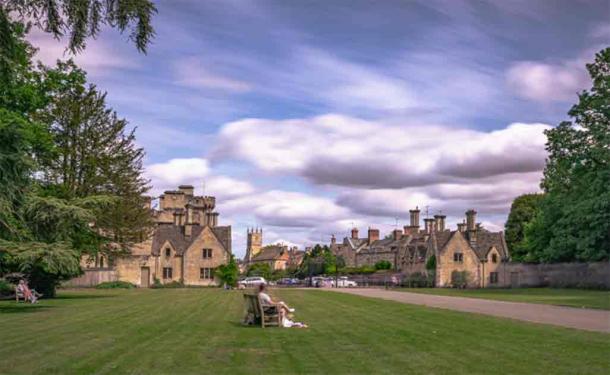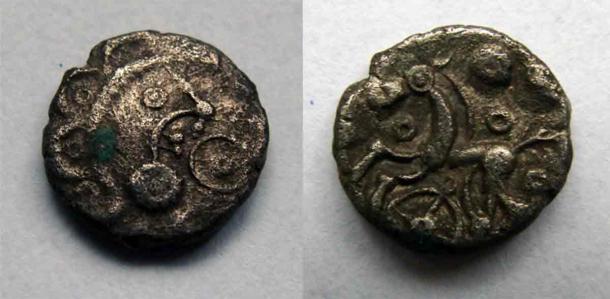Dobunni Tribe Thrived as Peaceful Ancient Farmers of the Cotswolds
The ancient Dobunni tribe holds a significant place in the Celtic era of British history, and its legacy is etched deeply into the fabric of pre-Roman Britain. Hailing from the area now known as Gloucestershire, Worcestershire, and Warwickshire in modern-day England, the Dobunni inhabited a landscape rich in resources and strategic importance. Through archaeological discoveries, historical accounts, and cultural remnants, we can piece together a narrative of this enigmatic tribe, shedding light on their societal structures, religious beliefs, economic activities, and interactions with neighboring tribes and later Roman invaders. Who were the Dobunni? And what are their origins?
- Romans Look to Have Brought Bedbugs to Britain
- Britons Gave Allegiance to Romans in Exchange for Protection (Video)
Dobunni, the Coin-Minters of Cirencester
The Dobunni were one of the indigenous Celtic tribes inhabiting Britain before the Roman conquest. Their origins are shrouded in mystery, however, mostly because of a lack of written records from that era. They most likely date back to the Iron Age, around 800 BC to 43 AD. The Dobunni belonged to the larger group of Celtic-speaking peoples known as the Britons, who populated the island of Britannia (modern Britain). The territory of the Dobunni encompassed a large swath of land in the southwestern part of Britain, with their core territories situated in the modern counties of Gloucestershire, Worcestershire, and Warwickshire.
- Is Celtic Birdlip Grave the Final Resting Place of Queen Boudicca?
- Forging a Nation: The Iron Age Tribes of Britain
One of the first steps towards unraveling the enigma behind the tribe was their name. Through the name, scholars tried to find the clues towards their origins. One theory suggests that their name, also spelled Dubunni, has the root dub*, meaning black, or dark-haired. This could indicate their origins in the Celtic regions of Portugal and Spain, from where they sailed towards Britain, there to settle for good. While this theory is the most likely one, we still do not know for certain if it is true - the lack of written documents simply leaves us in the dark.
The Dobunni were organized into a tribal society, with a hierarchical structure likely led by chieftains or tribal kings. This was the case with most Briton tribes of that era. Archaeological evidence suggests the presence of hillforts and fortified settlements, indicating a need for defense and perhaps centralized authority. These hillforts served as centers of administration, trade, and communal gatherings, reflecting the social and political organization of the Dobunni. Their capital and their largest fortified settlement was known in Roman sources as Corinium Dobunnorum, which is today known as Cirencester.

Old Cotswolds town of Cirencester, England. (rpbmedia/Adobe Stock)
Peaceful Farmers and Excellent Craftsmen
Religion held a central place in Dobunnic society, as it did in many Celtic tribes. The Dobunni likely worshiped a pantheon of deities associated with nature, fertility, and warfare, reflecting their agrarian lifestyle and the challenges of survival in a tumultuous world. These were not warlike people and focused on a peaceful existence in their fertile valleys. Rituals, ceremonies, and offerings were made to appease these gods and ensure the prosperity and protection of the tribe. Sacred sites, such as stone circles, burial mounds, and hilltop sanctuaries, dot the landscape, bearing silent witness to ancient rites and beliefs.
The Dobunni thrived in a landscape rich in natural resources, including fertile farmland, mineral deposits, and access to waterways such as the great River Severn. Agriculture formed the backbone of their economy, with crops like wheat, barley, and oats cultivated in the fertile valleys. Livestock rearing, particularly of cattle, sheep, and pigs, supplemented their diet and provided valuable commodities for trade. The tribe also engaged in metalworking, producing tools, weapons, and decorative items from local iron ore and other metals. Trade networks extended beyond tribal boundaries, connecting the Dobunni with neighboring tribes and distant lands, facilitating the exchange of goods, ideas, and cultural influences. The coins minted by this tribe are a testament of their advanced knowledge of commerce, and their wealth in crops and other trade goods.

Silver coin of the Dobunni tribe, 13mm diameter. (Bryndlefly/CC BY-SA 3.0)
Alas, the arrival of the Roman legions in Britain in 43 AD marked a significant turning point in Dobunnic history. Almost immediately, unlike their neighboring tribes, the Dobunni willingly submitted to the Romans. And, as Roman influence spread and military control tightened, the Dobunni, like many other Celtic tribes, faced increasing pressure to submit to Roman rule. The construction of Roman roads, forts, and towns transformed the landscape, altering traditional patterns of settlement and land use. Eventually, the Dobunni succumbed to Roman culture and language, their once-thriving culture quickly assimilated into the broader framework of Romano-British society.
Enigmatic Origins and a Swift Disappearance
The story of the ancient Dobunni tribe offers a fascinating glimpse into the rich tapestry of Celtic Britain before the Roman conquest. Through their societal structures, religious beliefs, economic activities, and interactions with neighboring tribes and Roman invaders, we can reconstruct a vivid picture of their way of life and the challenges they faced. We also understand that not all Celtic tribes were the same, and that some preferred peace instead of war. Today, despite the passage of millennia, the legacy of the Dobunni endures, a testament to the resilience and ingenuity of ancient peoples in the face of change and adversity. Their spirit can still be felt in their home country, and in their capital Cirencester.
Top image: Image of a woman from a pre-Roman tribe, possibly the Dobunni of ancient Britain. Source: Stanislav/Adobe Stock
References
Allen, D. 1944. The Belgic Dynasties of Britain and their Coins. Archaeologia Vol. 90.
Eacott, J. 2019. The Eacott Name History. Lulu.com.
Moore, T. 2006. Iron Age Societies in the Severn-Cotswolds: developing narratives of social and landscape change. BAR British Series.
Van Arsdell, R. 1994. The Coinage of the Dobunni. Oxford University Committee for Archaeology.

















